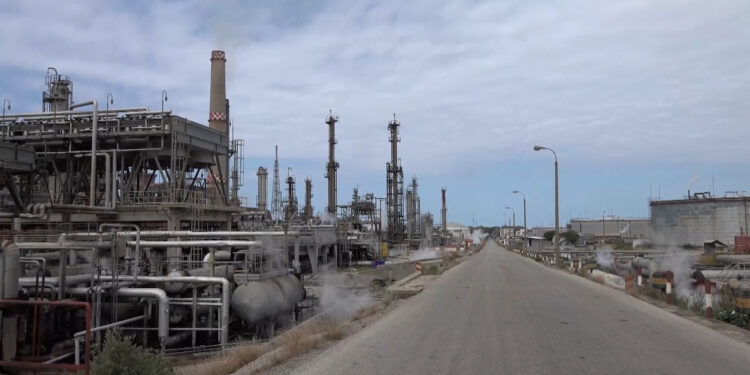The Banias refinery for refining oil in Syria has resumed work after a hiatus of more than 4 months, due to the raw reserves running out.
Al -Jazeera correspondent reported that the refinery was based on the imports of Iranian crude, which stopped with the fall of the regime of Bashar al -Assad.
He pointed out that about two million barrels of Iranian crude oil were reaching this refinery monthly.
Al -Jazeera correspondent, quoting the Minister of Energy, Mohamed Al -Bashir – added that the refinery began its work after importing about 350 thousand metric tons of crude oil recently through contracts concluded by the Ministry of Energy with international companies.
https://www.youtube.com/watch?v=z-crsrudgo
The director of the Baniyas Refinery said that the refinery will work with a production capacity of 100 thousand barrels per day, which will reflect positively on meeting the needs of the local market.
Al -Jazeera correspondent, Adham Abu Al -Hussam, said that the Baniyas Refinery has a fundamental role in meeting the local market, and that working in the refinery returned after qualifying the infrastructure and conducting construction operations despite the difficulties related to international sanctions, in addition to the difficulty in securing spare parts.
Numbers about oil in Syria
- The confirmed Syrian oil reserves in the last statistic of 2015 are estimated at about 2.5 billion barrels, according to the American Energy Magazine.
- In the period leading up in 2011, the average oil production was 350 thousand barrels per day.
- Syria was exporting 150 thousand barrels per day of crude oil, and the rest were directed to Homs and Banias refineries, whose absorptive capacity of refining is 240 thousand barrels per day.
- The average consumption reached 350 thousand barrels per day, and Syria imported average of 105 thousand barrels per day of capacitors (diesel, gasoline, Kirosin).
- Syria has 3 ports for export and import on the Mediterranean Sea, which are Tartous, Lattakia and Banias.



